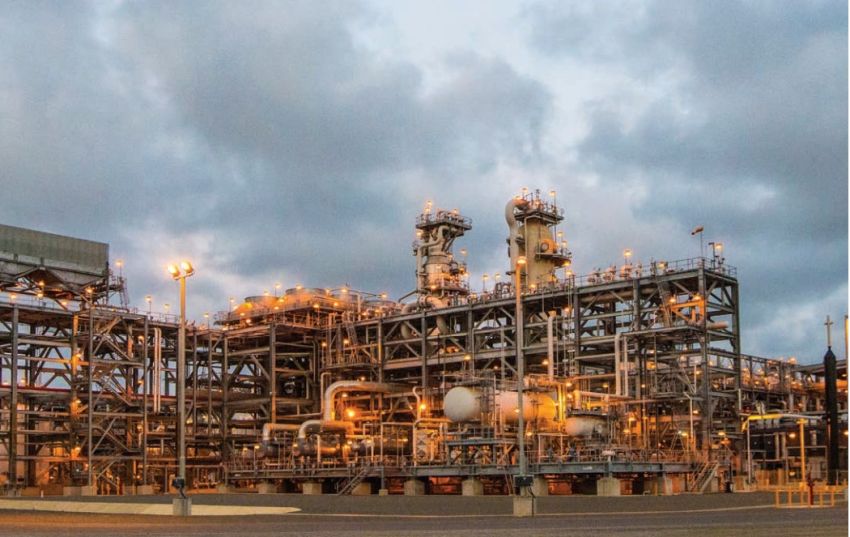
It has been six months since federal environment minister Tanya Plibersek released the government’s Nature Positive Plan, which proposes long-overdue reform of Australia’s main environment law — the Environmental Protection and Biodiversity Conservation Act 1999 (EPBC).
Environmental organisations are increasingly concerned that she is approving new coal and gas projects while holding off on amendments to the act.
The Environmental Defenders Office (EDO) again urged the government to “act with urgency”, saying in July that the EPBC Act “is not fit for purpose”.
It wants the EPBC Act — which is meant to protect unique plants, World Heritage-listed places, ecosystems and endangered species — to also take climate change into account when assessing new fossil fuel and forestry projects.
It is significant that this act from last century has a massive blind spot on climate change. It does not adequately take carbon emissions into account. Australian greenhouse gas emissions, per capita, are above the OECD average.
The EDO’s Frances Medlock and Rachel Walmsley pointed out it is “nonsensical” that “In over 1000 pages, the EPBC Act fails to explicitly, clearly and comprehensively address the threat of climate change”.
They pointed to the State of the Environment Report which confirms the need to rapidly reform the law to stop extinction and put the brakes on global warming.
They also want legally enforceable national standards, a new independent Environment Protection Agency (EPA), community participation in decision-making, engagement with First Nations communities and better data collection.
Fossil fuel emissions not counted
A 2020 review by Professor Graeme Samuel, commissioned under the Coalition, found that the EPBC Act is “ineffective” because it “does not clearly outline its intended outcomes, and the environment has suffered from 2 decades of failing to continuously improve the law and its implementation”.
Medlock and Walmsley agreed and argue that climate change and environmental protection go hand in hand. “Not only does the act deal with approvals of fossil fuel projects without explicitly addressing greenhouse gas emissions head on, but it fails to adequately deal with the impacts of climate change on matters of national environmental significance, like the Great Barrier Reef and other World Heritage sites.”
They said that while the NPP enforces disclosures for Scope 1 (direct) and Scope 2 (energy use) emissions for new projects, it does not “require substantive assessment of how a new coal mine might affect the carbon budget” or “whether a new gas drilling project could undermine our international obligations to reduce emissions”.
The Climate Council (CC) criticised Labor’s plan last year for a new EPA that would only assess Scope 1 and Scope 2 emissions.
It said under such a proposal “it appears possible for a new coal mine or gas project to be approved if the company uses solar power and electric vehicles in its operation – despite the massive emissions impact of that coal or gas being burned offshore”.
It said emissions from exported fossil fuels are “Australia’s biggest contribution to the climate crisis” and are “more than double our domestic emissions”.
CC Director of Research Dr Simon Bradshaw said the test is how the government ensures harmful emissions are fully assessed and regulated for major project proposals. “For coal and gas which are fuelling the climate crisis, that means assessing emissions at every point from their extraction through to use.
“Australia needs to throw everything we’ve got at tackling the climate crisis. That means we cannot leave this major gap for new fossil fuel projects to waltz on through.”
Medlock and Walmsley said: “climate change considerations must be integrated into environmental decision making at every level in the new laws”. Specifically, they want a “climate trigger” included to prevent new coal and gas projects on the basis of their carbon emissions.
Federal Labor has committed to expanding the “water trigger” in the act, to encompass unconventional gas (shale and coal seam gas fracking). But NT Labor has already given Tamboran Resources approval to make the Beetaloo Basin an industrial gas field.
This happened despite the state’s own fracking inquiry’s recommendations. The EDO said NT Labor’s independent oversight advisor even “acknowledged that crucial recommendations about community legal rights to challenge fracking approvals are inadequate”.
The CC is calling on Plibersek to ensure that climate change and its impacts be taken into account in the act.
It is worried because while the review continues, she has approved three new, or expanded, fossil fuel projects — and there are 22 more in the pipeline.
The CC wants Plibersek to pause all polluting project approvals until parliament fixes the EPBC Act.
[To find out more visit the Climate Council.]